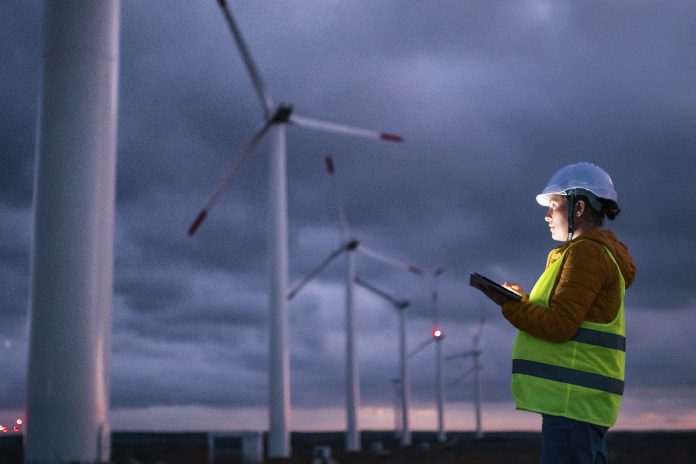Despite the UK government painting a positive picture of emissions cuts in its recent ‘Powering Up Britain’ report, it is set to miss its 2030 net zero targets
The Climate Change Committee says in its 2023 Progress Report to Parliament that “the framework is currently missing coherent plans to mitigate the delivery risks”. This comes at a time when global warming is set to break 1.5 degrees.
Some might put this lack of progress down to Russia’s invasion of Ukraine, which has subsequently reopened coal plants and increased the UK’s reliance on fossil fuels. But in fact, BayWa r.e.’s ‘The Decade That Matters 2.0’ report showed that over half (51%) of UK business leaders expect the war to only cause a two to three-year delay in meeting net zero targets. Meanwhile, over half (54%) of British policymakers say the impact will not affect the world’s path to net zero at all.
While recent developments had an impact, what’s having a far more detrimental effect is a damaging misalignment between policymakers and business leaders on the transition to net zero in general – one that was in place long before the war in Ukraine.
When asked when they see a transition to renewables happening, 70% of business leaders said not until 2050, while in contrast, over a third (35%) of policymakers believe it will be achieved during the 2030s. While this disconnect isn’t new, the need to arrest climate change grows every day, emphasising the urgency for both parties to put their misalignment behind them and kick off a new era of collaboration.
‘A lack of appreciation the public and businesses have for the impacts of climate change’
In seeking to create more harmony between businesses and policymakers, one major challenge to overcome is finger-pointing. Over a third (36%) of policymakers say that a barrier to reaching net zero targets is a lack of appreciation the public and businesses have for the impacts of climate change. While the two most frequently given answers by business leaders were not receiving enough support from the government and current policy – chosen by 37% and 30% respectively.
‘Business leaders are not receiving enough support from the government and current policy’
Such disparate sentiment underlines the need for more alignment around the challenges and their solutions. While the government is responsible for setting the agenda, it’s up to businesses to act on these decisions. But in tough economic circumstances, just keeping the lights on is a challenge; and without support, sourcing renewable energy is being deprioritised by many businesses.
Policymakers must therefore take this as their cue to play a bigger part in changing opinion and educating the public and businesses on the impact they face without action, not to mention providing more regulation and support.
96% of businesses are already sourcing, or planning to source, renewable energy
Our data shows that 96% of businesses are already sourcing, or planning to source, renewable energy. The intention is already there, so the government must ensure that it provides the right green incentives, like support and funding, to convert this into action.
But equally important to driving action is understanding why it’s necessary. Businesses need to realise that, despite the recession or inflation, climate change won’t hit the pause button. They must also recognise that the growth and longevity of their business and meeting sustainability targets are not mutually exclusive – and that a move to net zero can ultimately lead to lower energy costs and a more positive brand image amongst consumers.
Collaboration and community are key here. Without it, both policymakers and businesses risk a level of passiveness that won’t just see them lose out, but the planet too.

Response to the energy crisis gives us hope of meeting net zero targets
Despite the war in Ukraine, the response to the subsequent energy crisis does give us hope of meeting net zero targets. This is backed up by findings from the World Economic Forum which show that 2022 was a ‘record-breaking’ year for renewable energy in the UK, with 40% of its electricity made up of solar, wind, biomass and hydropower – a 5% increase from 2021.
This rise underlines that businesses must focus not only on reducing energy consumption but newer, cleaner forms of energy creation. And ringing in our ears should be the acknowledgement that, while the transition has now sped up, fast is nowhere near fast enough.
Not hitting our net zero targets would be a damning verdict of this decade’s efforts
However, progress must go beyond meeting those targets and inspire long-term and durable change. While excuses may be made about recessions, policies, borders or the speed at which humanity can change, the climate crisis does not care about any of them.
When it comes to the climate crisis, we can all agree on the overarching problem. Now it’s time we all agreed on the solution and found ways to work better together in the process. If our collective actions come even close to what we are capable of, the green energy transition will stay on track.
In its recent report, the IPCC stated that we cannot afford to further delay climate action, meaning that this decade, more so than ever before, is the one that matters. Businesses and policymakers must face up to their own accountability and start doing everything they can to meet net zero targets. And this means working together.
Sources
- https://assets.publishing.service.gov.uk/government/uploads/system/uploads/attachment_data/file/1147340/powering-up-britain-joint-overview.pdf
- https://www.theguardian.com/environment/2023/mar/30/net-zero-strategy-shows-uk-will-miss-2030-emissions-cuts-target
- https://www.theccc.org.uk/
- https://www.bbc.co.uk/news/science-environment-65602293
- https://www.weforum.org/agenda/2023/01/2022-renewable-energy-uk-electricity/
- https://www.ipcc.ch/report/sixth-assessment-report-cycle/
This piece was written and provided by Christine McGregor, MD, UK, BayWa r.e.











